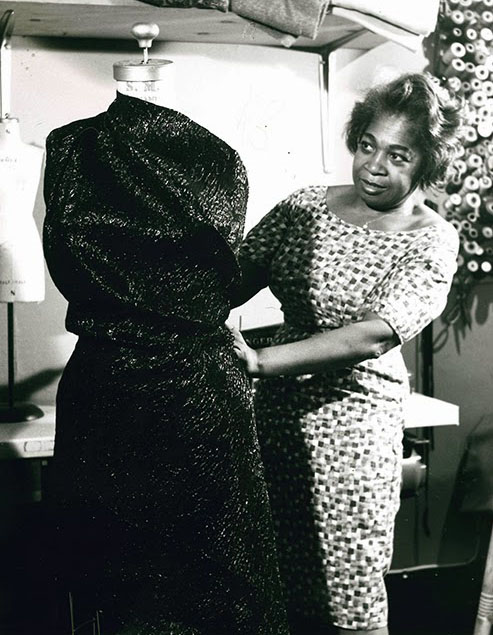Nisha Chandar-Nair sheds some light on under-appreciated Black talent in the fashion world.
Behind the glamourous façade, the fashion industry has come unstitched for its lack of Black representation. Naomi Campbell, Tyra Banks, Winnie Harlow and other big names demonstrate successful careers of people of colour in fashion. Yet there remains an issue with the ability of the industry to fully represent the Black community. In February 2018, less than 10% of designers at New York Fashion week were Black, whilst the same year, at London Fashion Week it was learned that only 34.6% of shows represented models of colour.
Despite a lack of mention, there are many Black names which have made remarkable contributions to the fashion industry. Ann Lowe, an African American, became the first Black designer to open a boutique on Maddison Avenue, an iconic moment that symbolises the breakthrough of Black owned business. At the peak of her success, Lowe designed the wedding dress of Jacqueline Kennedy, the First Lady of the United States. In spite of her successful work, Lowe was not protected from the inequalities faced by Black people at the time. During her studies in New York, she was made to study alone in a separate classroom. Even after news of her success spread, she continued to face impediments to her career, as people were reluctant to mention their clothes were designed by an African American designer. This led Lowe to be named ‘Society’s Best Kept Secret’ by a 1966 Saturday Evening Post, explaining her disproportion of fame in relation to her talent that has resonated to this day.

Zelda Wynn Valdes is an African American fashion designer who worked closely on the original design for the Playboy bunny costume. Before being noticed Vales acquired a job at a boutique where she was kept in the back, away from customers. Her talents were noticed which quickly gained her a reputation among clients, leading to many positive long-lasting contributions to the industry. One of these was the National Association of Fashion and Accessories Designers effort to promote racial diversity in fashion through the elevation of other Black female designers. Valdes contributions resonate to this day as she remains the motivator for the creation of pointe shoes for dancers of colour, opening the door for Black women in other industries besides fashion. Despite dressing some of the most famous women in the world, she still remains virtually unknown.
Arthur McGee, an African American designer was told, along with many others, there were no jobs available for him as a person of colour. At the peak of his career he was able to design for celebrities including Stevie Wonder. Despite this, he was unrecognisable to those in the fashion industry and was even mistaken for a postman in the office. The absurdity of this confusion stems from the underlying tendency of society to devalue Black achievement.

Black Fashion matters. The work of Black designers represents more than just their skills, it represents their ability, or the ability of those before them, to break the racial barrier that prevented people of colour from entering sectors such as the fashion industry for many years. By underrepresenting Black names in fashion, Black history and Black culture are simultaneously overlooked.
Fashion is recognised as a hard industry to break into, but it should never be your ethnicity that holds you back from being successful.

